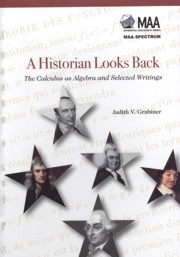Book contents
- Frontmatter
- Contents
- Introduction
- Part I The Calculus as Algebra
- Preface to the Garland Edition
- Acknowledgements
- Introduction
- 1 The Development of Lagrange's Ideas on the Calculus: 1754–1797
- 2 The Algebraic Background of the Theory of Analytic Functions
- 3 The Contents of the Fonctions Analytiques
- 4 From Proof-Technique to Definition: The Pre-History of Delta-Epsilon Methods
- Conclusion
- Appendix
- Bibliography
- Part II Selected Writings
- Index
- About the Author
Preface to the Garland Edition
from Part I - The Calculus as Algebra
- Frontmatter
- Contents
- Introduction
- Part I The Calculus as Algebra
- Preface to the Garland Edition
- Acknowledgements
- Introduction
- 1 The Development of Lagrange's Ideas on the Calculus: 1754–1797
- 2 The Algebraic Background of the Theory of Analytic Functions
- 3 The Contents of the Fonctions Analytiques
- 4 From Proof-Technique to Definition: The Pre-History of Delta-Epsilon Methods
- Conclusion
- Appendix
- Bibliography
- Part II Selected Writings
- Index
- About the Author
Summary
J.-L. Lagrange has long been viewed as a seminal figure in the history of physics, of algebra, of number theory, and of the calculus of variations. But to modern mathematicians and, until recently, to most historians, he was also the man who assumed that every function had a powerseries expansion, and who defined the derivative of a function as the coefficient of the linear term in its Taylor series. Accordingly, Lagrange's foundation for the calculus has been viewed as a step backward. But this dissertation, the work of various scholars, and my 1981 book The Origins of Cauchy's Rigorous Calculus, have made clear that the older view of Lagrange's calculus is wrong. Lagrange was the key predecessor of men like Bolzano, Cauchy, and Weierstrass in creating modern analysis. Lagrange believed that the calculus of Newton and Leibniz could be defended from logical criticisms, and rigorously founded, by being reduced to algebra. His nineteenth-century successors agreed. Though they rejected the algebra of power series Lagrange had proposed as the foundation for the calculus, they did adopt much of his general approach, his terminology and notation, and—above all—many of his methods and proof-techniques.
While The Origins of Cauchy's Rigorous Calculus focuses on Cauchy's accomplishments and treats Lagrange insofar as he contributed to them, the present volume concentrates on Lagrange's work on the foundations of calculus in its own right: on its motivation, its sources, and its content, with only some hints of its influence. The introduction to this version (pp. 9–15 below) places Lagrange in his Enlightenment setting, and explains the key features of his foundation for the calculus.
- Type
- Chapter
- Information
- A Historian Looks BackThe Calculus as Algebra and Selected Writings, pp. 3 - 6Publisher: Mathematical Association of AmericaPrint publication year: 2010



